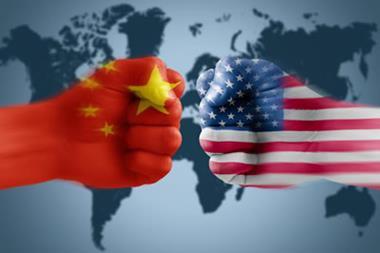A new board of leading voices from the world of risk and security, brought together by risk management company, Healix, shares their opinions on the greatest geopolitical and security challenges that risk managers need to tackle
General Sir Richard Shirreff, KCB, CBE

One of the biggest geopolitical risks in the immediate short-term, particularly for the Transatlantic region (Europe and North America), is that we face an existential threat from a resurgent Russia.
More broadly, the consequences of climate change are having an impact now on geopolitics and will continue to do so: desertification, competition over water, rises in sea levels to name but a few.
This means taking an integrated approach to risk management and understanding the relationships between risk and the second and third-order impact of one risk on another.
Ambassador Ivo Daalder
Chinese strategic competition poses the greatest geopolitical risks as it is increasingly becoming THE driving force for U.S., European, and Asian global engagement.
How the competition evolves will have the greatest immediate impact on geopolitics.
Also concerning is Russian militarism, especially since the Russian economy is now fundamentally a war economy, meaning that future military engagement by the Russian military is fundamental to its economic stability.
Finally, the threat of Islamic extremism remains real … especially in the Middle East but also in Europe.
Dr Catherine Fieschi
![Catherine Fieschi[1]](https://d9x705hv73pny.cloudfront.net/Pictures/280xAny/5/9/5/108595_catherinefieschi1_142910.jpg)
The threats of disinformation and cyber-warfare will continue; enhanced by a historic year in politics – with seven of the world’s largest economies going to the polls before its end. That’s four billion people across the globe, with the right to vote in these elections.
The lead-up and results of these elections will drive polarisation and fragmentation in advanced democracies leading to instability and ungovernability - examples of which we have already seen in the first half of this year.
Sue Williams QPM

Virtual kidnapping, which typically begins with a phone call claiming the recipient’s family member is being held captive, and the growing role of AI within this type of scam.
There is potential for AI and deepfake technology to be leveraged by “kidnappers” to pressure victims into paying a ransom. It can be used to mimic the voice of the “kidnapped” person, fooling, and putting extra pressure on the person receiving the phone call. This makes it easier for extortionists to take advantage of people acting out of fear, rather than with a cool head.
Dr John Lewis

Understanding and managing the business risks emerging from the strategic ‘Democracy v Autocracy’ clash - in broad and simplistic terms competition/conflict between the ‘West’ (5-Eyes, G7, EU, NATO, S Korea) and aggressive, autocratic regimes (in particular Russia, China, Iran, N Korea) challenging the post WWII rules-based international order.
The outcome of the US Presidential election will have a major impact in this context.
Generative AI offers significant opportunities but at the same time hallucinatory and adversarial threats which are not yet well-understood.
AI innovation is currently ahead in the race with governance/regulation. We will see many examples of these threats in action as the 2024 elections across the globe unfold, not least in India, the EU and the US.
Growth in uncontrolled migration and trade disruption will also present organisations with potential challenges.














No comments yet